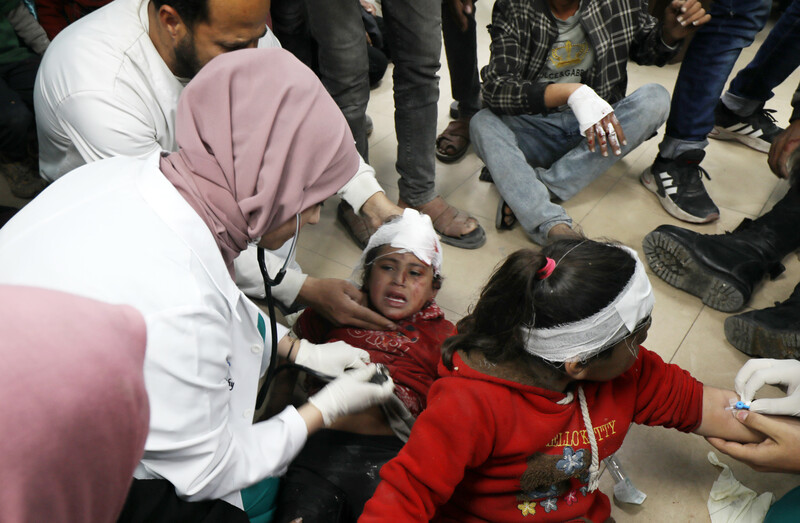The Electronic Intifada 27 March 2024

Children are in agony this Ramadan.
APA imagesIt is a Ramadan of tears and heartbreak.
I feel unwell and I fear death.
It has been almost 180 days since I last had any proper sleep. I feel like I have aged considerably in that period.
I am pale and my spirits are low.
During the first week of Ramadan, a vase kept falling down. The vase had no flowers in it.
There was something about the way that vase kept falling which broke my heart. Every time.
My mother has thyroid issues. I constantly hear her coughing.
There is often blood on our floor. It is from my father’s feet, which are sore and cracked.
The background image on my mobile phone shows French fries and ketchup. Whenever my 2-year-old niece sees the phone, she licks its screen.
Her own mother cannot give her enough food.
My other nephews and nieces play a frightening war game. They imagine that a missile has hit and killed them.
One of my sisters is pregnant. She is filled with dread.
Running out of hope
I sometimes look at photos from last Ramadan – a time of joy.
I miss my sister’s iftar table. There I would eat okra, my favorite food.
The only ingredient I now have for an okra-based recipe is some basil.
I had planted some basil in the first month of this war. It was my way of seeking out hope.
I am running out of hope.
During last year’s Ramadan I prayed in the evening at Gaza City’s Great Mosque (also known as the al-Omari mosque).
On my way to the mosque, I breathed in the scents of dates, nuts and spices. The streets were full of food.
All of that is now beyond our imagination.
Last Ramadan, we went to an iftar in the Gaza Municipality Park.
It has been attacked by Israel’s forces during the current war. Now it is just a pile of rubble.
I used to rejoice in the atmosphere at Ramadan.
Balconies everywhere were festooned with lanterns.
The laughter of children echoed.
People gathered to see each other.
It is rare now to see a house that has not been damaged or destroyed.
The streets exude misery.
Upside down
Everything has been turned upside down.
Israel has once again sent us back to the stone age.
I miss the bottle of sugarcane juice my friend always brought me during Ramadan. It wasn’t a luxury but a medication because I’m immunocompromised.
Israel has deprived me of both things I liked and things I needed.
I can’t even find some space for reciting or listening to the Quran.
I can’t have a minute of tranquility. I can’t have anything good.
The noise of Israel’s drones is shortening my life.
I try to console myself by recalling that I once had a life.
That life has disappeared.
“How has it disappeared?” I wonder.
Then I ask the question that haunts me: Will I survive this genocide?
I see the dust covering my university backpack and look at the books inside it. Then I think about whether I will ever be considered a student again.
Ramadan should begin by hearing a drummer. He wakes us up for suhoor, the pre-dawn meal.
That sound has been replaced by Israel’s explosions.
Around the world, Muslims are savoring Ramadan’s sweets.
I add artificial sweetener – suitable for people with diabetes – to the only cup of tea I have each day. The tea is made with polluted water.
No calls for prayer can be heard in my neighborhood.
No smiles can be seen on people’s faces.
In my neighborhood, mothers grieve over their children’s dead bodies and husbands cry because their wives have been killed.
Children are eating grass because they are so hungry.
We are all traumatized.
I have loads of Ramadan memories from previous years.
But if I survive, I won’t be able to enjoy the places I visited previously. They are in ruins.
Israel has killed my friends.
Israel has destroyed my life.
I miss everything.
Abubaker Abed is a journalist and translator from Deir al-Balah refugee camp in Gaza.





